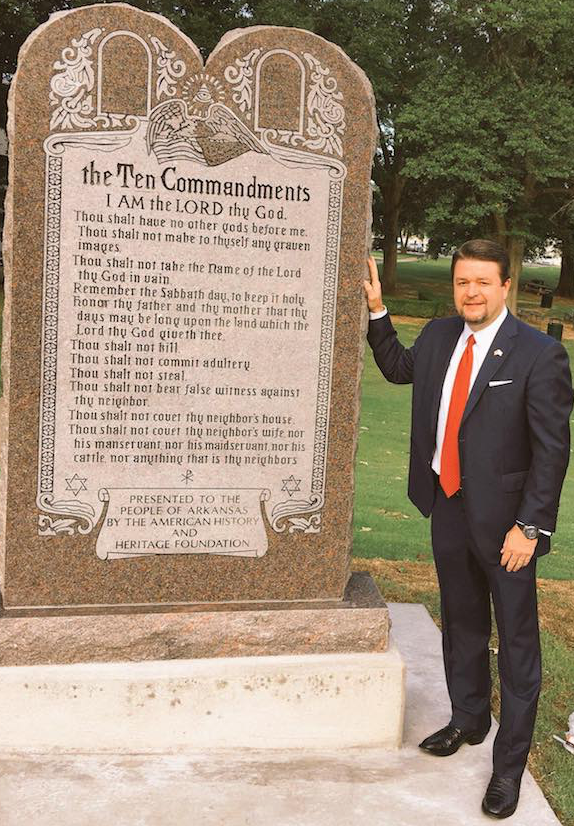Nathan et al v. Alamo Heights Independent School District et al
On July 2nd, 2025, FFRF and a coalition filed a lawsuit on behalf of a group of sixteen multifaith and nonreligious Texas families to block a state law requiring all public elementary and secondary schools to display the Ten Commandments in every classroom.
Texas Senate Bill 10 requires all public elementary and secondary schools statewide to display either a “durable poster” or “framed copy” of the Ten Commandments in a conspicuous location within every classroom. The law specifies a particular Protestant version of the Ten Commandments.
On August 20, 2025, the district court issued a preliminary injunction prohibiting the school districts from implementing the law.
The plaintiffs include Jewish, Christian, Baptist, nonreligious, Hindu, and Unitarian families. The complaint argues that SB 10 violates both the Establishment Clause and Free Exercise Clause of the First Amendment to the U.S. Constitution, which protects the separation of church and state and guarantees religious freedom.
- Complaint
- Plaintiffs’ Motion for Preliminary Injunction
- Expert Report of Steven K. Green, J.D., Ph.D.
- Defendants’ Motion to Dismiss and Response in Opposition to Plaintiffs’ Motion for Preliminary Injunction
- Plaintiffs’ Memo in Opposition to Defendants’ Motion to Dismiss
- Order Granting Preliminary Injunction
Cribbs Ringer et al v. Comal Independent School District et al
On September 22, 2025, FFRF and a coalition filed a second lawsuit on behalf of a group of 15 nonreligious and multifaith Texas families.This new complaint is a response to school districts that have or are about to display Ten Commandments posters, despite the federal court’s ruling in the coalition’s other Texas case.
Both lawsuits were filed in the U.S. District Court for the Western District of Texas. The plaintiffs are represented by the ACLU, the ACLU of Texas, American United for Separation of Church & State, Simpson Thacher & Bartlett LLP, and FFRF. Legal Director Patrick Elliot, Senior Litigation Counsel Sam Grover, and Litigation Attorney Nancy Noet are serving as co-counsel.


 The Freedom From Religion Foundation and a coalition of plaintiffs filed a lawsuit on May 23, 2018, against Arkansas Secretary of State Mark Martin seeking the removal of a massive Ten Commandments structure from the grounds of the Arkansas State Capitol.
The Freedom From Religion Foundation and a coalition of plaintiffs filed a lawsuit on May 23, 2018, against Arkansas Secretary of State Mark Martin seeking the removal of a massive Ten Commandments structure from the grounds of the Arkansas State Capitol.